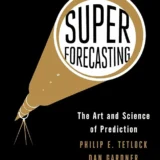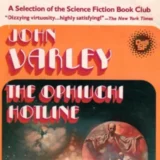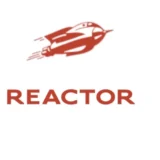So, you remember this:

Just kidding. Putin didn’t really ride the meteor! But it was an uneasy thing to watch on Youtube, wasn’t it? Especially with Asteroid 2012 DA14 whizzing through our neighborhood just hours later in a “completely unrelated event,” according to NASA. (Yeah, and Russian presidents will fly.)
While post-apocalyptic fiction burns up the bestseller lists, meteor apocalypse scenarios are oddly thin on the ground. After not being able to think of a single one, I resorted to Wikipedia and discovered … not a single one! Apart from some games and a 2010 movie called Meteor Apocalypse, which … well, read this guy’s review.
But in Japan, meteors are a favored shorthand for apocalypse. Witness the extraordinary popularity of Shuumatsu no Fool, by Kotaro Isaka. The title is Fool of the End Times but could be more cleverly translated as Terminal Fool. The setting: a mansion building (block of condominiums) in Sendai, in northern Japan. The premise: An extinction-sized meteor is going to strike the Earth in three years. Everyone will die. The story: errrr … There isn’t one. In eight interrelated shorts, the tenants of the mansion building wrestle with their personal dilemmas (should I have a baby? Is it worth bothering to get my revenge on my enemy? Should I commit suicide?) and occasionally say things about the approaching end of the world that may be either shallow or unfathomably sublime. Probably, I’m the shallow one. I kept waiting for the champion kick-boxer who is one of the protagonists to build a spaceship out of old heating oil cans and recruit his neighbors to turn the meteor aside from Earth by crashing into it kamikaze style. Not that I enjoyed Armageddon so much I want to see the Japanese version, but … you know? If you put a gun on the mantelpiece in Act 1, it had better go off by the end of Act 3 … and if you’ve got a giant meteor cruising towards Earth at a sizable fraction of the speed of light, haven’t you at least got to make an effort to do something about it?

Well, Shuumatsu no Fool isn’t that kind of book. Fact is, it’s literary fiction. In literary fiction it is OK to open your story with a giant meteor speeding towards Earth, and end your story with a giant meteor still speeding towards Earth, providing your characters have achieved epiphanies in the meantime. (Live for the moment. Being with your family is what matters. Just do the things you can do. Redirect 90% of global GDP into a crash engineering program to build a Moon base Go for a run.) I’ve read too much science fiction to enjoy this sort of thing. But many, many readers absolutely loved Shuumatsu no Fool. It does act as a reminder to “stay awake and watch, for you know neither the day nor the hour,” and that never goes amiss.
My dissatisfaction with the book was really a result of two clashing culturally-rooted expectations. First, I expect stories about meteor apocalypse to be science fiction. Second, I expect stories to have endings. There’s a Japanese word for this “sense of an ending”: ochi [落ち]. That’s the kanji for drop or fall, and the sense is of the other shoe dropping. It means “the punchline” or “the point.” Shuumatsu no Fool lacks an ochi.
Ochi-less stories are a familiar form in Japanese literature.(1) As an example, I’m going to give you here in its entirety the text of a Japanese children’s book that mysteriously ended up on Baby’s bookshelf, あーんあん [Waa, Waa] by Keiko Sena. Don’t worry, it’s short.
I don’t mind going to nursery
But I don’t want Mommy to go home
If I cried, “Waa, waa!”
Another child would cry “Waa, waa!” with me
And another child would cry “Waa, waa!” with us
Everyone would cry “Waa, waa!”
Our tears would form a lake
We would turn into fishes
Teacher would phone Mommy
Mommy would come with a bucket and a net
And help me
When I first read this to Baby, I got to the end and looked for more pages. I thought: that’s it? So … what happened? Did anything happen? The whole damn book is in the subjunctive. Did the kid actually go to nursery or not? Did he cry or not? If there is a point here at all, it seems to be that if you cry, Mommy will come and take you home. But Shiketa assures me I’m overthinking it. “It’s a fantasy,” he says. “The kid is just imagining what would happen if he cried. There’s no ochi.”
The world of Waa, Waa is the world of Shuumatsu no Fool. Fantasy without a point, without an ending, without a moral.
I started writing about meteors and I ended up writing about ochis. There’s a nice jingling sort of appropriateness about this. A brand new metonymy struggling to be born? Fear of falling. Waiting for the other planitesimal-sized shoe to drop. Waiting … and waiting. One doesn’t want the end to come, but knows that it will.
So here’s my favorite kind of ending: a joke.
Q: How are meteors like witty Japanese punchlines?
A: Statistically, one appears on Earth every hundred years or so.(2)
Ha, ha, ha **clunk** (that was me getting hit by a flying Russian president).
***
1. Or maybe just in some parts of Japan. I live in Tokyo, and Tokyo dominates Japanese culture like London dominates British culture. People say that Tokyoites are especially prone to tell stories without an ochi. On the flip side of the 100 yen coin, Osakans are allegedly brimming with witty punchlines. Can’t say anything about this from experience. I’ve only been to Osaka once, and that was as a March 11th refugee, and I didn’t hear many jokes flying around then. (The atmosphere was, rather, one of smug indifference to the travails of the Kanto region.)
2. Exaggeration. Of course the Japanese aren’t humorless! Check this out.












I knew someone else would be able to come up with some 😀 Lucifer's Hammer is now on my TBR list.
And! Spookily, I just found a new book called The Last Policeman, by Ben Winters, that has the exact same premise as Shuumatsu no Fool. Only this one is set in America. I can't wait to read it and compare the underlying assumptions about meteor apocalypse.
I've read a few asteroid/comet apocalypse (or averted apocalypse) SF stories, complete with Ochi. If you want a proper apocalypse, you need something larger than a meteor, though a meteor can do some serious damage.
Lucifer's Hammer by Larry Niven & Jerry Pournelle – Hugo nominated novel – this is a good one if you are looking for the impact with aftermath. It gave me a real sense of what it might be like if a comet slammed into Earth. I'm surprised this was never turned into a movie.
The Hammer of God by Arthur C. Clarke – short story later expanded into a novel – has the attempt at saving Earth.
I can't think of others off-hand, but I am sure there are more.